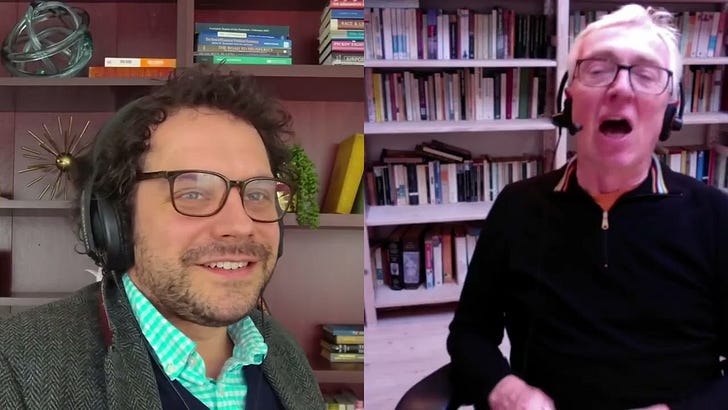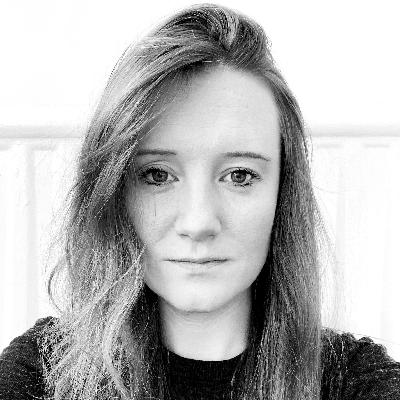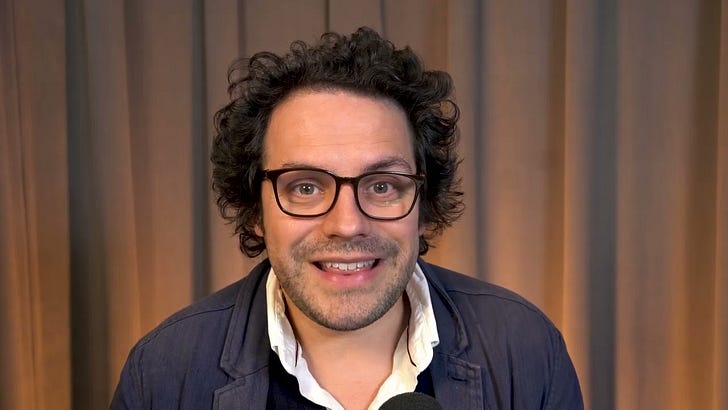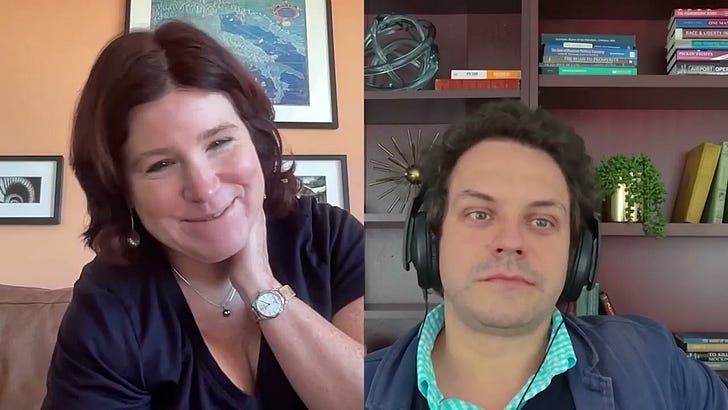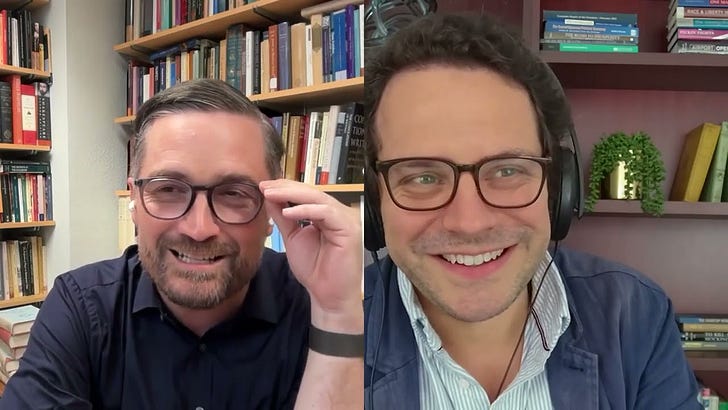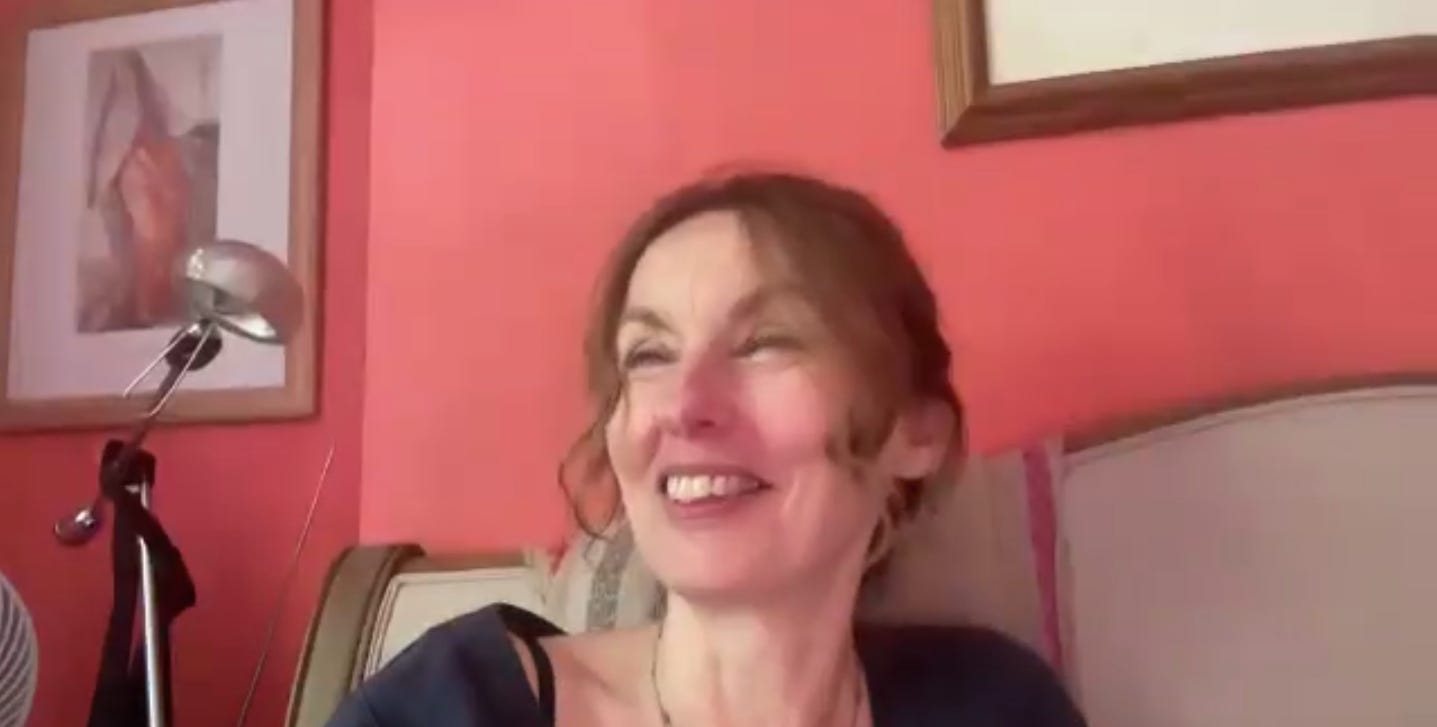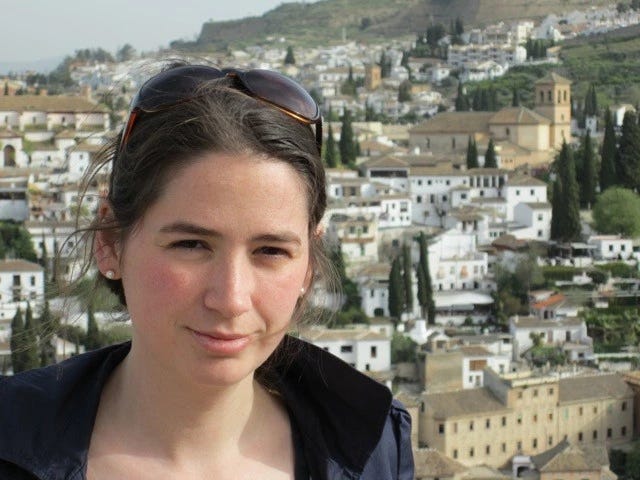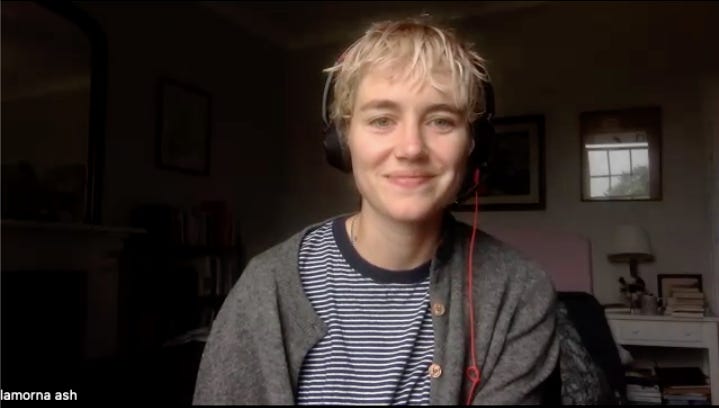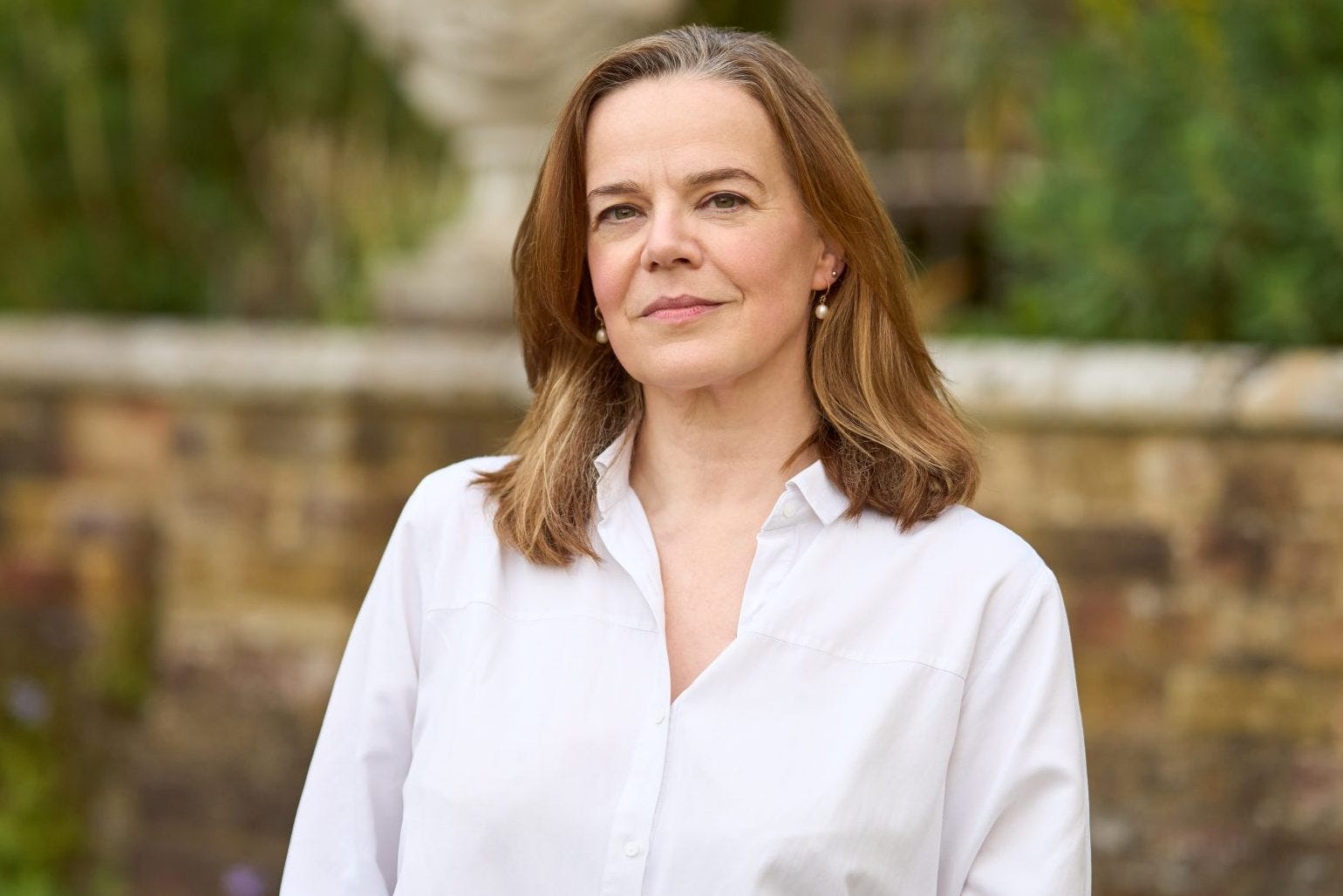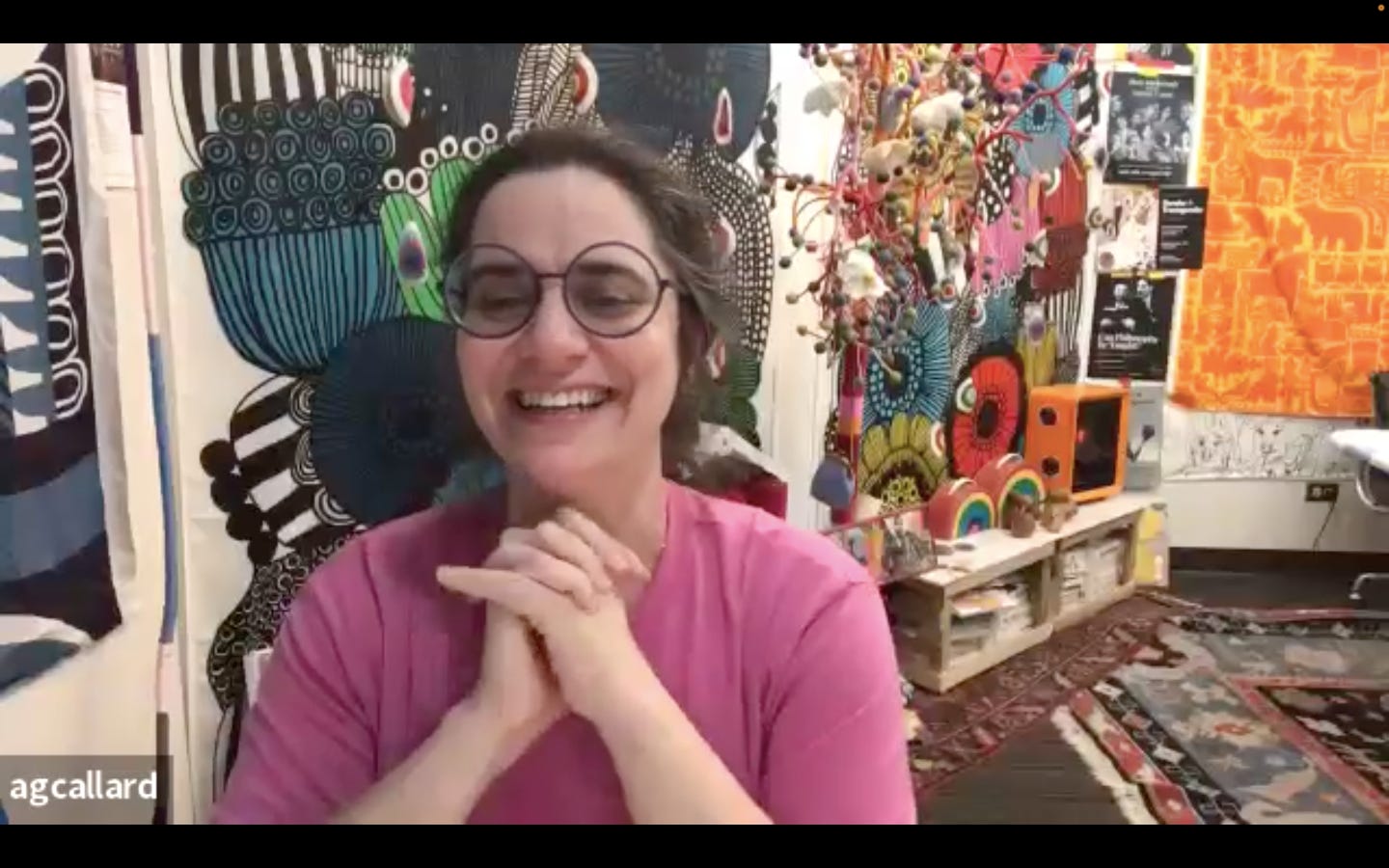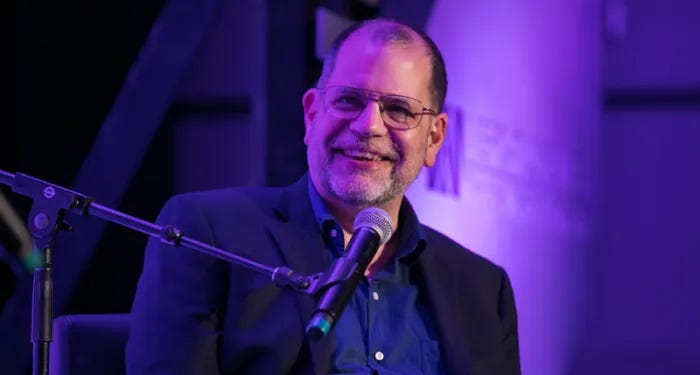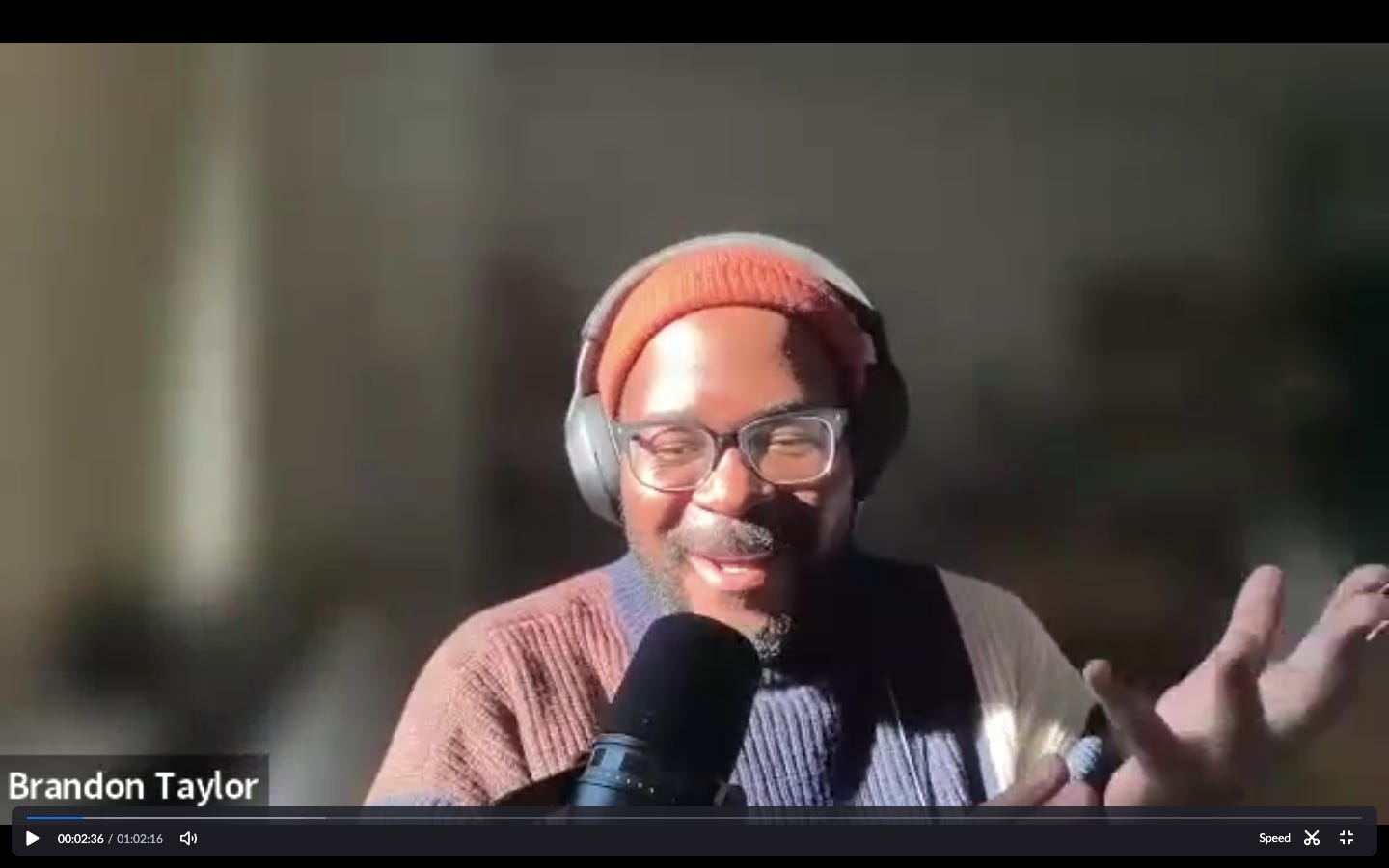 Is Atlas Shrugged the new vibe?
Is Atlas Shrugged the new vibe?
Description
Atlas Shrugged seems to be everywhere today. Randian villains are in the news. Rand remains influential on the right, from the Reagan era to the modern libertarian movement. Perhaps most significantly, entrepreneurs like Elon Musk and Marc Andreessen who are moving into government with DOGE, have been influenced by Rand, and, fascinatingly, Andreessen only read the novel four years ago.
Hollis Robbins (@Anecdotal) and I talked about how Atlas Shrugged is in conversation with the great novels of the past, Rand’s greats skills of plotting, drama, and character, and what makes Atlas Shrugged a serious novel, not just a vehicle for ideology.
Love it or loathe it, Atlas Shrugged is having a moment. Everyone brings a preconception of Ayn Rand, but she has been opposed by the right and the left ever since she first published. Other than Jennifer Burns’ biography, academic study has largely declined to notice Rand. But Rand deserves our serious attention, both as a novelist, and as an influence on the modern world.
Here are a couple of excerpts.
We talk a lot these days about, “how can I be my best self?” That’s what Rand is saying. She's saying, actually, it’s not about earning money, it’s not about being rich. It is about the perfection of the moral life. It's about the pursuit of excellence. It’s about the cultivation of virtue. These are the important things. This is what Dagny is doing. When all the entrepreneurs at the end, they’re in the happy valley, actually, between them, they have not that much money, right?
Also this.
What would Ayn Rand think about the influencer economy? Oh, she’d despise it. She would despise it… all these little girls wanting to grow up to be influencers, they’re caught in some algorithm, which is awful. Why would you want to spend your life influencing others? Go create something. It’s a hard medicine.
And.
Her aesthetic is very classical, draped. She doesn't wear flowery patterns. She wears draped, clearly close-fitting gowns and gray tailored suits and a minimum of jewelry, though she does have this bracelet chain made of Rearden metal. You don't know when she possibly has time to go shopping, but she’s perfectly dressed all the time in the fashion that we would understand as feminist. She wears trousers, she wears suits, but when she goes out, this black velvet cape. I think it’s important to see her as that, even though nobody talks about that in terms of this novel, what a heroine she is. I know that when I was reading her as a teenage girl, that’s it.
Transcript
Henry: Today, I am talking with Hollis Robbins, former dean of the humanities at Utah University and special advisor on the humanities and AI. We are talking about Atlas Shrugged by Ayn Rand. Hollis, hello.
Hollis Robbins: Hello. I'm really glad to have this conversation with you. We've known each other for some years and follow each other's work. I was trained as a scholar of 19th-century American, Victorian, and African-American literature, mostly novels, and love having conversations with you about big, deep novels. When I suggested that we read this book, I was hoping you would be enthusiastic about it, so I'm really happy to be having this conversation. It's hard to know who's interviewing you or what conversation this is, but for you coming at this middle-aged. Not quite middle-aged, what are you?
Henry: I'm middle enough. No. This is not going to be an interview as such. We are going to have a conversation about Atlas Shrugged, and we're going to, as you say, talk about it as a novel. It always gets talked about as an ideology. We are very interested in it as a novel and as two people who love the great novels of the 19th century. I've been excited to do this as well. I think that's why it's going to be good. Why don't we start with, why are we doing this?
Hollis: I wanted to gesture to that. You are one of the leading public voices on the importance of reading literature and the importance of reading novels particularly, though I saw today, Matt Yglesias had a blog post about Middlemarch, which I think he just recently read. I can credit you with that, or us, or those of us who are telling people read the big novels.
My life trajectory was that I read Atlas Shrugged and The Fountainhead before I read Dickens, before I read Jane Austen, before I read Harriet Beecher Stowe or Melville or the Brontës. For me, Atlas Shrugged and The Fountainhead were foundational novels as novels. I wondered what it would be like to talk to somebody whose experience was flipped.
Henry: Right, I'm 38 and I'd never read this book. I was coming at it partly having read all those other books, but partly for my whole life, people have said, "Oh, that's really a bad book. That's so badly written. That book is no good." The number one thing I can say to people is this book is fun.
Hollis: It's really fun. I was going to say usually what I forget to do in talking about books is give the summary. I'm going to hold up my copy, which is my dog-eared copy from high school, which is hilarious. It's got the tiniest print, which I couldn't possibly read now. No underlining, which is interesting. I read this book before I understood that you were supposed to underline when you liked passages in the book.
It was interesting to me. I'd probably read it five or six times in my youth and didn't underline anything. The story is--- You can help me fill in the blanks. For readers who haven't read it, there's this young woman, Dagny Taggart, who's the heiress of the Taggart Transcontinental Railroad fortune. She's a woman. This takes place in about, I think, the '40s, '50s. Her older brother, Jim Taggart, is CEO. She's COO, so she's the operations person. It is in some ways the story of her-- It's not quite a bildungsroman. This is the way I tell the story. It's the story of her coming to the realization of how the world works. There's many ways to come at this story. She has multiple boyfriends, which is excellent. Her first boyfriend, his name is Francisco d'Anconia. He's the head of d'Anconia Copper. He too is an heir of this longstanding copper fortune. Her second is a metals magnate, Hank Rearden, who invents this great metal, Rearden metal.
Really, it's also the story of the decline of America, and the ways that, in this Randian universe, these villainous group of people who run the country are always taking and extracting from producers. As she's creating and building this great railroad and doing wonderful things and using Rearden metal to do it, something is pulling all the producers out of society, and she's like, "What is going on?"
It turns out there's this person, John Galt, who is saying, "I don't like the way the country is run. I don't like this extractive philosophy. I am going to take all the producers and lure them voluntarily to a--" It's a hero's lair. It's not like a James Bond villain lair. It's a hero lair in Colorado called Galt's Gulch. He is John Galt. It ends up being a battle between who is right in a wrong world. Is it the ethical person, Dagny Taggart, who continues to strive and try to be a producer and hold on to her ethics in this corrupt world, or is it somebody saying, "To hell with this. I am going on strike. You guys come with me and let the world collapse." How's that for summary?
Henry: No, I think that's great. I couldn't have done a better job. One thing that we can say is that the role of reason, of being a rational person, of making reason the sole arbiter of how you make choices, be they practical, ethical, financial, whatever, that's at the heart of the book, right?
Hollis: That's the philosophy. We could go there in a second. I think the plot of the book is that she demonstrates this.
Henry: What she has to learn, like what is the big lesson for Dagny, is at the beginning, she hasn't fully understood that the good guys use reason and the bad guys do not, as it were.
Hollis: Right. I think that's right. I like thinking about this as a bildungsroman. You said that the book is fun. Her part of the book is fun, but not really fun. The fun part of the book, and you can tell me because every time you kept texting me, "Oh my God, Jim Taggart. Oh my God, Jim Taggart. Oh my God, Jim Taggart."--
Henry: These guys are so awful. [laughs]
Hollis: They're so awful. The fun parts of the book, the Rand villains are the government entities and the cabals of business leaders who she calls looters and second-handers who run the country and all they do is extract value. Marc Andreessen was on a podcast recently and was all about these Rand villains and these looters. I think, again, to get back to why are we doing this and why are we doing this now, Ayn Rand and Atlas Shrugged is in the air with the second Trump administration.<


